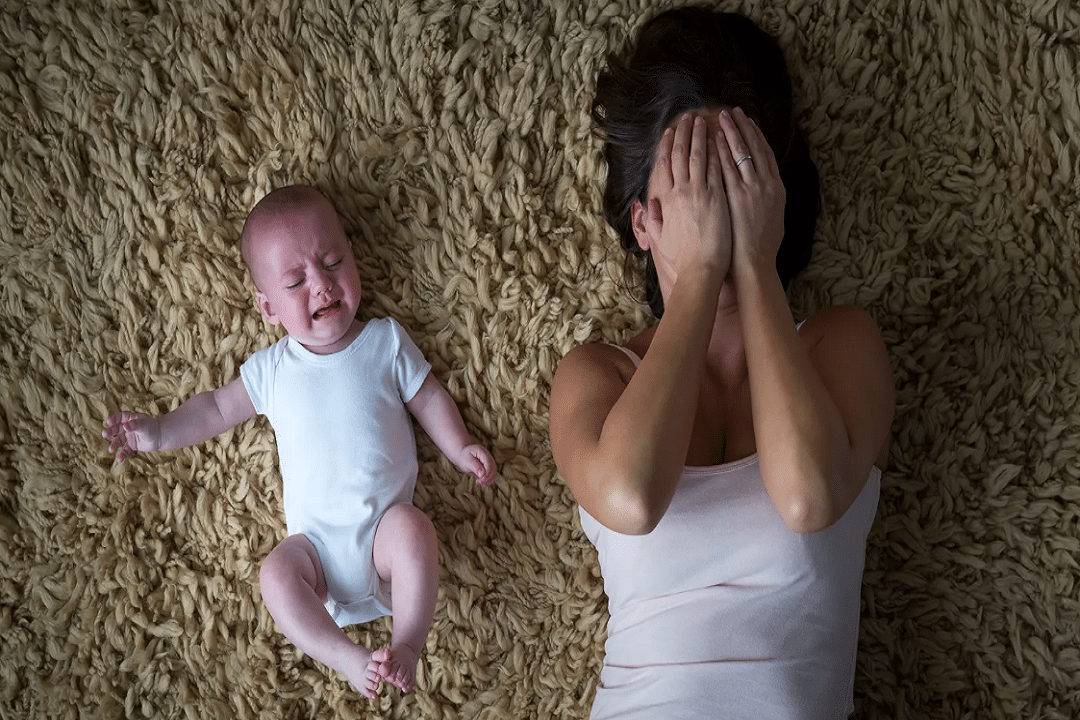Postpartum Depression: Causes, Symptoms, and Treatments
Catagory: Gyneacology Author: Dr E Reshma Reddy

Postpartum depression (PPD) is a kind of depression that strikes new moms soon after giving birth. This condition can develop anytime during the first year after childbirth, and it affects up to 1 in 7 women. PPD can have a significant impact on a mother’s life, including her ability to care for her child and herself. In this blog, we will discuss the causes, symptoms, and treatments of postpartum depression.
Causes of Postpartum Depression
PPD’s precise etiology is not entirely known. However, several factors may contribute to its development. These include:
- Hormonal changes: The dramatic hormonal changes that occur during and after childbirth can cause chemical imbalances in the brain, leading to PPD.
- Emotional stress: Giving birth and adjusting to motherhood can be stressful, and this stress can contribute to the development of PPD.
- Physical changes: After giving birth, a woman’s body undergoes significant physical changes, which can cause discomfort and pain, contributing to the development of PPD.
- Lack of social support: Women who do not have social support from friends, family, or a partner may be more vulnerable to developing PPD.
Symptoms of Postpartum Depression
PPD symptoms can vary from person to person, but they typically develop within the first few weeks after giving birth. The symptoms may include:
- Feelings of sadness, hopelessness, or emptiness
- Absence of enthusiasm for activities you once liked
- Difficulty sleeping or sleeping too much
- Feeling overwhelmed or anxious
- Loss of appetite or overeating
- Trouble concentrating or making decisions
- Feelings of guilt or worthlessness
- Irritability or anger
- Difficulty bonding with your baby
- Thoughts of harming yourself or your baby
If you are experiencing any of these symptoms, it’s important to seek help from a healthcare provider.
Treatments for Postpartum Depression
PPD can be treated successfully with a combination of therapy and medication. The most effective treatments for PPD include:
- Therapy: Talking with a therapist or counselor can help you understand and manage your feelings of depression. Cognitive-behavioral therapy (CBT) and interpersonal therapy (IPT) are two types of therapy that have been shown to be effective for PPD.
- Medication: Antidepressant medications can be prescribed to help manage the symptoms of PPD. The chemicals in the brain that control mood are brought back into balance by these drugs.
- Support groups: Joining a support group for new mothers can help you connect with other women who are going through similar experiences. This can provide you with emotional support and help reduce feelings of isolation.
- Lifestyle changes: Making healthy lifestyle changes, such as getting regular exercise, eating a healthy diet, and getting enough sleep, can also help manage the symptoms of PPD.
It’s essential to seek treatment for PPD as soon as possible. The longer you wait to get help, the more challenging it can be to manage the symptoms. If you are experiencing any symptoms of PPD, talk to your healthcare provider about your options for treatment.
Conclusion
PPD is a common condition that can affect new mothers. It’s important to understand the causes, symptoms, and treatments of PPD to ensure that you or a loved one gets the help needed to manage this condition. Remember that seeking help is a sign of strength, not weakness, and that with the right treatment, PPD can be successfully managed.
Recent posts
-
Reife Prostituierte - Genieße prickelnde Treffen
-
Ficken In Meiner Nähe - Sinnliche Models
-
How to Choose the Right Maternity Hospital in Tirupati
-
How to Maintain a Healthy Pregnancy: Expert Tips
-
Breaking Taboos: Candid Conversations About Women's Health Issues
-
Expert Answers to Top 5 FAQs about the Female Reproductive Lifecycle
-
Navigating Women's Health: Insights from an Obstetrician and Gynecologist
-
Journey to Motherhood: A Comprehensive Guide to Pregnancy Care
-
Sexual Health and Well-being: Expert Advice from Your Obstetrician and Gynecologist
-
Navigating Menstrual Health: Insights and Tips from Your Gynecologist
-
Self-Examination of Breasts
-
Navigating PCOD A Comprehensive Guide for Indian Women
-
Understanding Vaginal Health A Comprehensive Guide
-
Unmasking the Shadows: Smoking's Impact on Women's Health Explored
-
The Crucial Importance of Sleep for Women's Health
-
Unveiling the Benefits of a Healthy Diet for Women's Health
-
How to Increase Your Chances of a Normal Delivery: A Guide for Expectant Moms
-
Preventing and Treating Pelvic Inflammatory Disease
-
How to Deal with Vaginal Dryness and Discomfort
-
Discover the 8 Most Promising Fertility Treatment Options
